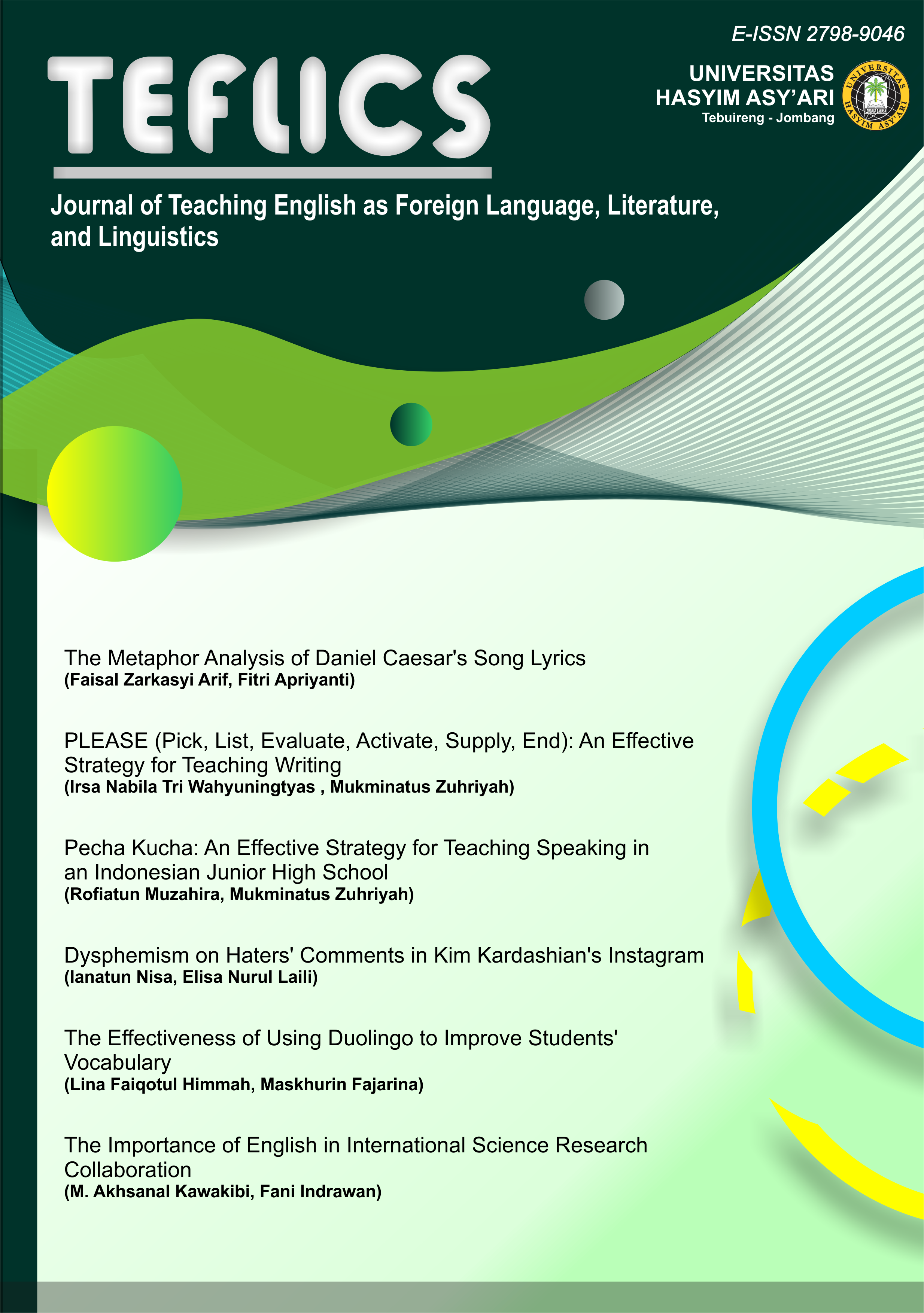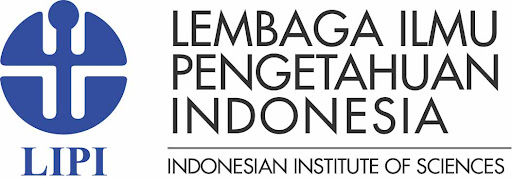The Importance of English in International Science Research Collaboration
DOI:
https://doi.org/10.33752/teflics.v4i1.6544Keywords:
vocabulary, science, researchAbstract
In international science research, English has emerged as the dominant lingua franca, facilitating communication and collaboration across diverse linguistic and cultural backgrounds. This study explores the role of English in global scientific forum, particularly in research collaboration, publication, and international forums. English enables faster communication and comprehension among researchers, thus enhancing the efficiency and effectiveness of collaborative efforts. Using a structured methodology, this study identifies the most frequently used English terminologies in scientific publications and underscores their significance in conveying complex scientific ideas. The findings reveal some vocabularies are heavily used in scientific publications which gives an insight for English learners especially for academic setting who may need to publish their writing into international publications. This paper concludes that mastering English is essential for researchers aiming to engage in international collaborations and contribute to the advancement of global science.
Downloads
References
Aribowo, Lukman. 2017. SMA Profile: High School with International Achievements. Directorate of High School Development, Directorate General of Elementary and Secondary Education, Ministry of Education and Culture. Jakarta.
de Frutos-Belizón, Jesús. Garcia-Carbonell, Natalia. Ruiz-Martinez, Marta. Sanchez-Gardey, Gonzalo. 2023. Disentangling international research collaboration in the Spanish academic context: Is there a desirable researcher human capital profile?. University of Cádiz, Faculty of Business and Management, Avenida Enrique Villegas Vélez, 2, 11002 Cádiz, Spain
de Grey, R. 2015. Ten Simple Rules for Establishing International Research Collaborations. PLoS Comput Biol 11(10)
Gui, Qinchang. Liu, Chengliang. Du, Debin. 2019, Globalization of science and international scientific collaboration: A network perspective, Geoforum, Volume 105, Pages 1-12.
Isfahan, Roya Moradi. 2020. Factors related to the international research collaboration in the health area: A qualitative study. Journal of Education and Health. Promotion 9(1):267.
McNamara, T. 2017. English as an international language of scientific communication: A study of attitudes. World Englishes, 36(4), 519-531.
MINISTRY OF FOREIGN AFFAIRS OF THE REPUBLIC OF INDONESIA. 2022.The United Nations Educational, Scientific and Cultural Organization (UNESCO).
Ministry of State Apparatus Empowerment and Bureaucratic Reform (PANRB). 2022. The Ministry of PANRB Shares MPP Development Experience at International Forums.
Moradi, R., Zargham-Boroujeni, A., & Soleymani, M. R. (2020). Factors related to the international research collaboration in the health area: A qualitative study. Journal of education and health promotion, 9, 267.
Ordonez-Matamoros, G. Vernot-Lopez, M. Moreno-Mattar, O. and Orozco. 2020. Exploring the Effects of North–South and South–South Research Collaboration in Emerging Economies, the Colombian Case. L.A.
Quick, Mark. 2014. Internationalization of EU research organizations - European Parliament. STUDY Panel for the Future of Science and Technology EPRS European Parliamentary Research Service Scientific Foresight Unit (STOA)
Trenkic, D. 2019. The role of English in international research collaboration. Journal of English for Academic Purposes, 39, 26-35.
https://feb.uns.ac.id/feb/icd-3-3/ 2016 https://www.balaibaturaja.litbang.kemkes.go.id/read-kolaborasi-dan-kerja-sama-global-harus-dilakukan-dengan-cermat. 2020.
















